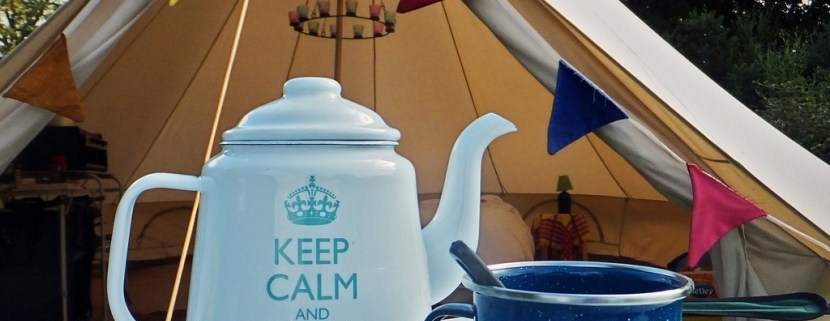The Oxford English Dictionary: glamping, manspreading and fro-yos!
OED: “the definitive historical record of the English language”. The OED releases a total of four updates throughout the year in March, June, September and December. Many social factors such as historical events, current affairs, other languages, popular culture, and more recently, technology, have a huge influence on our language. The use and meaning of a word can change over time due to the aforementioned factors, and this must be reflected in the dictionary, by altering and/or adding the relevant information.
One of the most famous additions from recent years has been the word “selfie”, as more and more people use it on a regular basis it was deemed appropriate for inclusion in the OED; now the majority of the population, younger and older generations, are familiar with the term. Even the eldest members of our families are asking to take selfies with us!
So, what else is new?
Additions from the two 2016 updates carried out so far include: “fro-yo”, “glamping”, “listicle”, “manspreading”, “krumping”, “bruh”, “rando”, “spesh”, “deffo”, “bants”, “cat cafe”, “vlog”, “gianduja”, and “vongole”; to name a few.
It is an interesting topic, the evolution of language. Terms that were only entered in the OED in recent years have since been modified and added under a newer term, for example: “banter”, a relatively new word, has since been added as “bants” or apparently also “bantz”; the latter spelling perhaps less common than imagined. Many terms, such as the ones defined below, derive from British or American English words as a consequence of popular culture relevant to the current period of history we are living in.
Fro-yo, the generic term for frozen yoghurt is now a very popular word in young peoples vocabulary. Although in some places it is known under different brand names, the common term remains the one entered in the OED.
| fro-yo /?fr?y?/ n. frozen yoghurt. [entry from US English dictionary]
She does not want an ice cream, she would prefer a fro-yo with fruit. |
glamping /??lamp??/ n. a form of camping involving accommodation and facilities more luxurious than those associated with traditional camping. [early 21st century: blend of glamorous and camping]
My friend prefers glamping to camping as she hates traditional style tents and cannot go a day without her hair straightener. |
Glamping, very much a 21st century phenomenon, is great for all those who love the being at one with nature, without actually having to get too close to it! Now offered at most summer music festivals in the UK, as well as all over the world as glamour/camping hybrid holiday.
Lisitcles are also something that did not exist until this century. As levels of online journalism are on the rise, with more and more magazines and newspapers being digitalised, this phenomenon of listing things people can easily relate to, often accompanied by pictures that most members of the target audience will be familiar with, is also seen on a more regular basis.
| listicle /?l?st?k(?)l/ A piece of writing or other content presented wholly or partly in the form of a list. [early 21st century: blend of list1 and article]
Have you seen the latest listicle posted by on the website? It is the top 10 places to visit in the area, the photos look great. |
manspreading /?manspr?d??/ n. the practice whereby a man, especially one travelling on public transport, adopts a sitting position with his legs wide apart, in such a way as to encroach on an adjacent seat or seats. [informal; Early 21st century; from man and spreading (see spread)]
I could not find a seat on the metro, if there were no such thing as manspreading, there would be plenty of room for everyone.
|
Manspreading, a popular topic for listicles maybe, is a word that has only surfaced in the past year with many male members of the population, some famous, having received comments on perhaps what is their most comfortable sitting position. It is a humorous term for when men sit with their legs open and splayed out to the sides, it was created recently and subsequently added to the OED.
Native speakers of English are often proud of their language, sometimes perceiving it as superior to others; what they do not realise is that, thanks to many other foreign languages we have a much more extensive vocabulary. The following terms, familiar to those of us who are either native Italian or interact with the Italian language on a daily basis, have also been included in the most recent updates of the OED.
| gianduja /?jän?do?oy?/ n. chocolate paste flavored with ground hazelnuts.
[Entry from US English dictionary (also gianduia ); Italian, from the name of a stock character in commedia dell’arte depicted as a jovial, wine-drinking peasant from the region of Piedmont, where the chocolate paste was first produced]
We tried some very tasty tartlets with a gianduja frosting on top.
|
vongole /?v????le?/ adj. Denoting pasta served with clams and a light sauce of olive oil, garlic, and sometimes tomatoes. [Italian, plural of vongola clam]
The chef recommended spaghetti vongole, he said it was an Italian seafood classic. |
What is interesting to note in the last entry vongole, has been entered in the English dictionary as an adjective, whereas in the Italian language, the language from which it originates, it is in fact a noun; to be more specific the plural of a noun. The aforementioned information is stated in the explanation of the origin of the word at the end of the definition, yet it is still curious the way English speakers have chosen to use it.
Here at Intrawelt we love ALL languages and cross-cultural communication, as well as some, at times obscure, additions to dictionaries!




